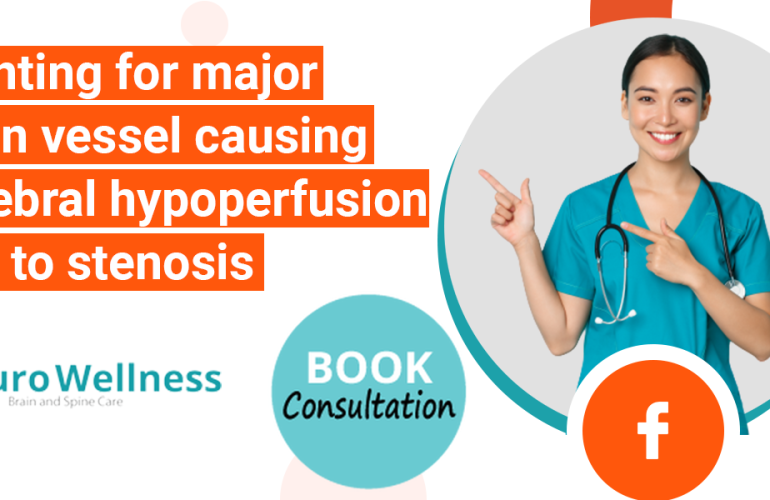IMAGE COURTESY MEDTRONIC
Neuroendovascular surgery is a rapidly evolving field, offering minimally invasive treatment options for a range of complex neurological conditions. Utilizing advanced imaging techniques and catheter-based interventions, these procedures can address vascular abnormalities, strokes, and tumours in the brain and spinal cord without the need for open surgery. In Bangalore, neuroendovascular surgery has become a key service for addressing critical neurovascular issues, with several advanced treatment options available.
Endovascular Treatment Options Available in Bangalore
-
Mechanical Thrombectomy for Acute Stroke
- A life-saving procedure for patients experiencing an acute ischemic stroke. This treatment involves removing a blood clot from a blocked artery in the brain, restoring blood flow and preventing further brain damage. Mechanical thrombectomy is now considered the gold standard for treating large vessel occlusions.
-
Carotid Artery Stenting
- Used to treat carotid artery stenosis, a condition that narrows the arteries supplying blood to the brain. Carotid stenting helps prevent strokes by inserting a stent to open up the artery, improving blood flow.
-
Arteriovenous Malformation (AVM) Embolization
- AVM embolization is a pre-surgical or standalone procedure to block abnormal blood vessels in the brain that are prone to bleeding. This reduces the risk of hemorrhage and can be done before surgery or radiosurgery.
-
Dural Arteriovenous Fistula (DAVF) Embolization
- This procedure targets abnormal connections between arteries and veins in the dura mater of the brain or spinal cord. Embolization helps prevent severe complications such as intracranial bleeding or neurological deficits.
-
Carotid Cavernous Fistula (CCF) Management
- CCFs are abnormal connections between the carotid artery and the cavernous sinus. Endovascular techniques like embolization are used to close the fistula, protecting vision and brain function.
-
Inferior Petrosal Sinus Sampling (IPSS)
- This diagnostic procedure is used to detect the source of excessive hormone production, particularly in Cushing’s disease. It involves sampling blood from the inferior petrosal sinuses to identify the tumour secreting the hormone.
-
Head and Neck Tumour Embolization
- Pre-operative tumour embolization reduces blood loss during surgery by cutting off the tumour’s blood supply. This is especially useful for highly vascular tumours in the head and neck.
-
Epistaxis (Nosebleed) Embolization
- For severe or recurrent nosebleeds that are not responsive to standard treatments, embolization offers a minimally invasive solution by blocking the bleeding vessel.
-
Spinal Arteriovenous Malformation (AVM) and Dural Fistula Embolization
- Spinal AVMs and dural fistulas are abnormal blood vessels in the spinal cord that can cause serious symptoms, including paralysis. Embolization helps seal off these abnormal vessels, preventing damage to the spinal cord.
-
Spinal Tumour Embolization
- Similar to head and neck tumour embolization, this procedure reduces blood supply to spinal tumours, facilitating safer and less invasive surgical removal.
-
Vertebral Tumour Embolization
- This procedure reduces the blood supply to vertebral tumours, minimizing blood loss during surgery and improving the outcome of tumour resection.
-
Cerebral Angiogram
- A cerebral angiogram is an advanced imaging technique used to visualize the blood vessels in the brain. It aids in diagnosing conditions such as aneurysms, AVMs, and vascular malformations.
-
Moyamoya Disease Evaluation
- Moyamoya disease causes progressive narrowing of the brain’s blood vessels, leading to strokes or mini-strokes. An endovascular evaluation helps assess the extent of vessel involvement, guiding treatment strategies like bypass surgery or angioplasty.
-
Wada Test
- The Wada test is a diagnostic procedure that assesses language and memory function before epilepsy surgery. It temporarily anesthetizes one hemisphere of the brain to determine which side is responsible for critical functions.
Why Choose Neuroendovascular Surgery in Bangalore?
Bangalore is home to state-of-the-art neuroendovascular centres offering cutting-edge treatments for neurological conditions. With a team of highly skilled neurosurgeons, interventional radiologists, and advanced technologies like 3D digital subtraction angiography (DSA), biplane imaging, and robot-assisted endovascular procedures, patients receive world-class care.
At NeuroWellness, comprehensive treatment options are available for all neurological problems, including neuroendovascular procedures, provided by experienced neurosurgeons. The use of minimally invasive techniques allows for faster recovery times, fewer complications, and excellent outcomes for conditions such as stroke, AVMs, aneurysms, and more.
Conclusion
With the latest technological advances and a multidisciplinary approach, Neuroendovascular Surgery in Bangalore provides effective and less invasive treatments for complex neurovascular disorders. Whether addressing strokes, vascular malformations, or spinal issues, patients can benefit from innovative therapies that enhance recovery and improve long-term outcomes.





Comments are closed.